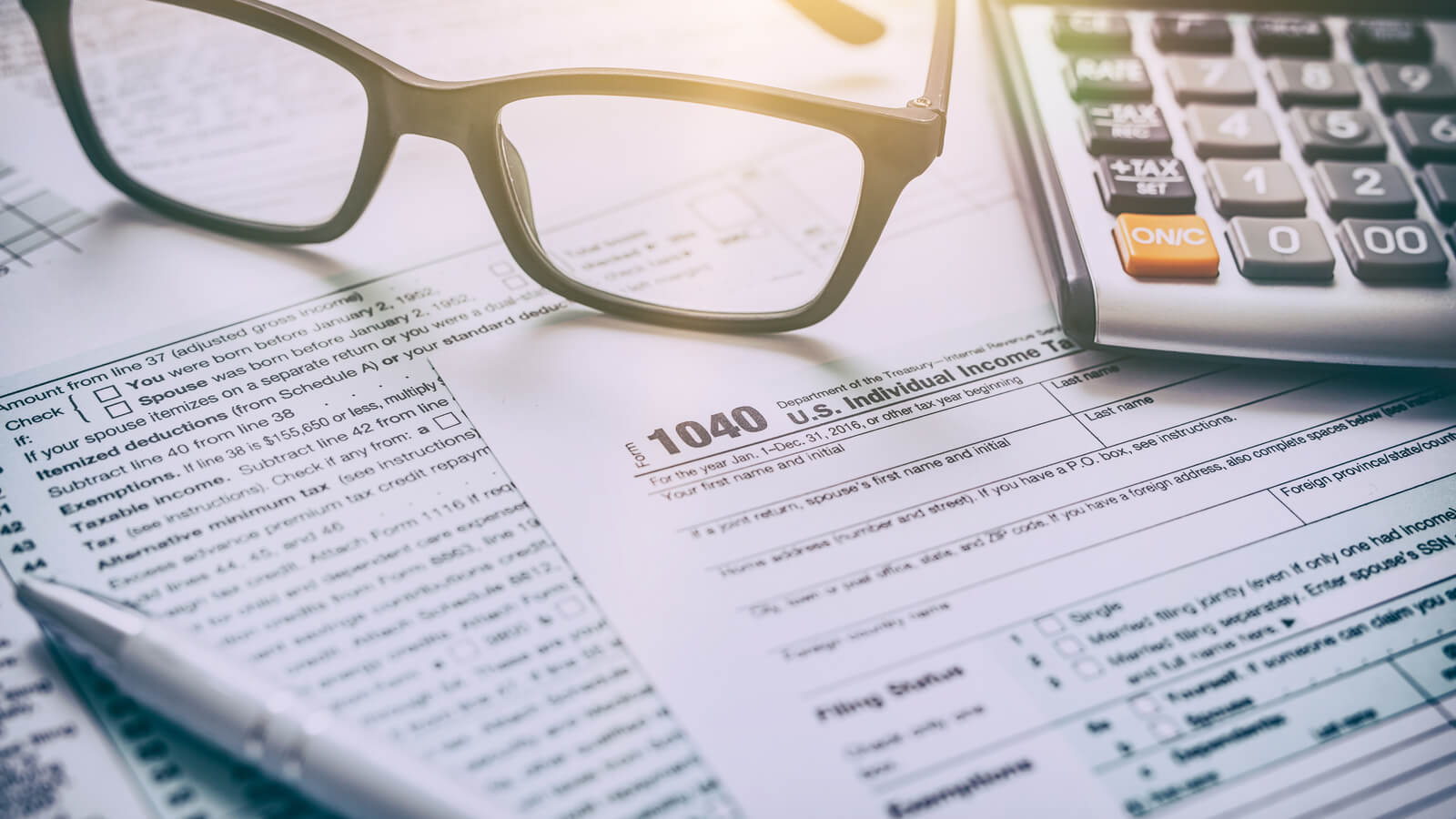It costs around $1,000 to $1,500 on average for a CPA firm to prepare both individual and business tax returns for small business owners. Here’s what factors can affect that cost.
As a small business owner, you’re probably already wondering how much you might have to pay the IRS this tax season. You shouldn’t have to wonder how much you’ll pay for a CPA firm to do your tax return.
The average cost of a CPA firm for personal and business taxes is around $1,250 to $3,450 or more. A CPA firm's cost depends on several factors — so a definitive answer to how much they charge for tax returns is impossible to say. With that in mind, here's a brief breakdown of that range:
- Tax returns for individuals: $500 to $950
- Tax returns for single-member LLCs without a tax election (Schedule C): Around $250 to $750
- Tax returns for partnerships and S corporations: Around $750 to $2,500
- Total cost for an individual and business tax return: Around $1,250 to $3,450
Hiring a CPA firm to do your personal or business tax return usually costs more up front than doing your return yourself or using a software like TurboTax — but you can get long-lasting tax benefits and avoid making mistakes by opting for a firm with a CPA and a bookkeeper. Below, you’ll see what factors into the cost of working with a firm, how to lower that cost and how a CPA can save you money in the long run.
Contents |
| What affects the cost of my tax return? |
| How can I lower the cost of preparing my tax return? |
| Can a CPA firm help me save money? |
What affects the cost of my tax return?
Most tax firms don’t have their rates for tax returns set in stone because several factors can impact the cost.
On top of that, many CPAs don’t know what costs might come into play until they actually start doing your return. Here are some of the biggest factors that could increase the cost of working with a CPA firm.
The number of returns
- Cost of a federal business return: Around $750 to $2,500
- Cost of state business returns: Around $250 to $500 (per state)
- Cost of a federal individual return: Around $500 to $950
- Cost of state individual returns: Around $150 to $350 (per state)
You’ll very likely pay more for a CPA if you need multiple tax returns done. You might need to file more returns if:
- You own an S corp or partnership
- You do business across multiple states
- You haven’t filed for multiple years
S corp and partnership owners are required to file two returns: their individual return and their business return. Single-member LLCs without a tax election only need to file their individual return. Business returns usually cost more to prepare than individual returns.
You may also need to file additional personal and business returns if your business operates in multiple states, which would cost you more. For example, a Florida-based business owner doesn’t need to file a state income tax return because the state doesn’t require it. But if that business owner stores their inventory or has sales in, say, California, they would need to file a business return for that state (and, in turn, a personal return there as well).
If you need returns done for multiple years, that may also increase the cost of working with your CPA. It’s pretty common for business owners to be behind on a few years of tax returns — especially if they’ve never worked with a CPA before. It costs more to have multiple years of returns done, but it’s worth it in many cases to avoid potential audits and penalties.
The complexity of your returns
- Additional cost for returns with Schedule K-1s: $70 to $150 (per K-1)
- Additional cost for returns with rental real estate properties: $70 to $300 (per property)
Things like stocks, real estate and multiple business entities can complicate your personal and business returns. Many small business owners who do their tax returns themselves mess up on reporting those complexities and end up with penalties.
For example, if you have ownership in another S corp, you’ll receive a Schedule K-1 that tells you how much you made from it. That makes things more complicated on your tax return and increases the cost of it.
Since those factors make your return more complicated and take more time to get right, CPA firms typically charge more for them.
Your bookkeeping and accounting
- Cost of cleaning your books: Likely a bookkeeper’s hourly rate, which can range from $100 to $200
If a firm’s bookkeeper has to organize your books to do your tax return, then it will probably cost you more.
It’s crucial to have your books in order well before tax season. Your CPA has to work off of an accurate reflection of your financials. So the more errors there are in your books, the longer a firm’s CPA or bookkeeper has to spend working on them. That results in a higher final cost.
The CPA’s hourly rate
- Hourly rate for a CPA: Around $200 to $500
Many CPAs charge an hourly rate for some tasks in addition to your tax returns’ flat rate. Why? Because there’s more that goes into doing a tax return than just filling the numbers.
The CPA will likely want to meet with you before and during the process of doing your tax return. That helps them get a better understanding of you and your business’ situation — and that’s time you’ll probably have to pay for.
You may also be charged the hourly rate for time they spend conducting outside research, reviewing your documents, answering your questions and more.
How can I lower the cost of preparing my tax return?
Although it may feel like the cost of your return is adding up, there are ways to lower the cost of working with a CPA firm to prepare your taxes.
Keep your books clean
Messy books can increase the cost of your tax return. You can avoid that possibility by keeping your books as organized as possible throughout the year.
You can organize your books by reconciling your accounts, correcting your balance sheet and income statement and using accounting software.
This makes completing your tax return a lot easier because a CPA can see an accurate and up-to-date reflection of your business’ profits, debts and more. If your books aren’t accurate and current, your CPA will have to do that work for you — which they’ll charge you for. Your firm likely has a bookkeeper you can work with throughout the year to keep your books clean.
Invest in strategic tax planning
Putting together a higher-level tax strategy throughout the year with a CPA can make tax season a whole lot easier. Then you won’t have to pay for time spent explaining your entire financial history to a CPA because they’ll already know it.
Tax strategy involves timing out purchases, structuring your business, deciding when to pay taxes and more to help you save the most in taxes.
Making those decisions throughout the year helps you save on the cost of your tax return in a few ways. One way is by qualifying you for more deductions and credits than you would have otherwise. Plus, your CPA will already know what to do with your tax return — which takes up less time and costs you less money.
Can a CPA firm help me save money?
Yes, a CPA can help you save money in the long run.
A CPA is likely to help you take more tax deductions and apply credits that you didn’t know you qualified for. In lowering your tax due, especially over multiple years, you can potentially save thousands of dollars.
You can take deductions when doing your own tax return, but many small business owners don’t deduct nearly as much as they should, simply because they don’t know all the deductions that are available to them.
You can also lower the risk of paying penalties and interest by hiring a CPA. There are many tax return mistakes small business owners can make that result in penalties. A firm that houses bookkeepers can save you even more because your books and your taxes would be on the same page.
When a CPA prepares your tax return, they’re less likely to make those costly mistakes in the first place. And if you do make a mistake, a CPA can deal with the IRS for you.
That’s why, as a small business owner, it makes more sense to invest in a CPA than it does to use a tax software. Software like TurboTax are designed for individuals with simple tax situations — which business owners don’t have. A CPA that works with you for a long time understands your business in and out and knows exactly how to help you save.
The bottom line
There’s no definitive cost for a CPA firm to do your tax return — but most firms take the same factors into account when charging for tax returns.
While it varies, the total cost for a personal and business return done by a CPA can cost around $1,250 to $3,450. That depends on a wide range of factors, like the type of business, how many owners, investments, the state you live in, the number of returns and possibly more.
Hiring a CPA firm to do your taxes will typically cost more than tax software — but you have the potential to save a lot more in taxes over time. Plus, there are ways to lower the cost of your tax returns.
If you’re interested in having a CPA do your next tax return, schedule a free call with a member of our team today. You can view our range of prices for tax returns here — so you don’t have to wait for a quote, talk to a salesperson or stay in the dark about the price of your return.








